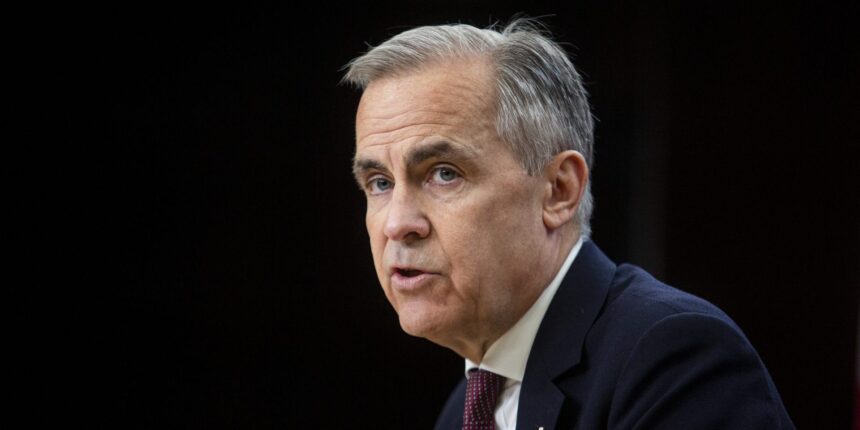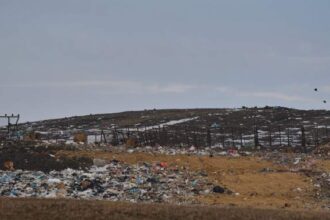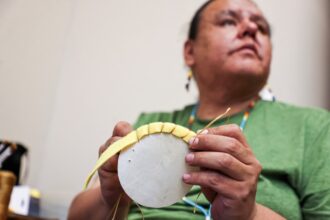In a significant escalation of Canada’s diplomatic efforts, former Bank of Canada governor Mark Carney has embarked on a high-stakes mission to Washington, signaling Prime Minister Justin Trudeau’s commitment to strengthening bilateral relations at a critical juncture. Carney, who also previously led the Bank of England, arrived in the U.S. capital yesterday armed with an ambitious agenda addressing trade tensions, border security, and climate policy coordination.
Sources close to the Prime Minister’s Office confirm that Carney’s diplomatic assignment comes amid growing concerns over protectionist policies threatening Canada’s economic interests. “This isn’t just another consultation trip,” revealed a senior government official speaking on condition of anonymity. “The Prime Minister has tasked Carney with establishing meaningful dialogue channels that can withstand potential administration changes in both countries.”
Carney’s credentials make him uniquely positioned for this delicate mission. His extensive experience navigating complex financial systems during the 2008 global financial crisis has earned him respect across Washington’s political spectrum. Canadian Ambassador to the United States Kirsten Hillman emphasized this point during yesterday’s press briefing: “Mark brings unparalleled expertise in economic policy and international relations at a time when such knowledge is critically needed.”
The delegation’s itinerary includes meetings with Treasury Department officials, congressional leaders from both parties, and key economic advisors. Particularly noteworthy is Carney’s scheduled discussion with members of the Senate Finance Committee regarding ongoing disputes over softwood lumber, electric vehicle manufacturing incentives, and digital services taxation.
“The timing of this mission is not coincidental,” explains Dr. Elaine Thompson, International Relations professor at the University of Toronto. “With rising economic nationalism globally and upcoming electoral cycles in both countries, Canada is wisely investing in relationship-building that transcends partisan politics.”
Trade data underscores the urgency of Carney’s mission. Canada-U.S. bilateral trade reached nearly $800 billion last year, supporting approximately 1.5 million Canadian jobs. However, recent policy shifts have threatened this economic partnership, with Canadian exports facing increased scrutiny and regulatory challenges at the border.
Climate policy coordination represents another crucial aspect of Carney’s agenda. As a longtime advocate for sustainable finance and carbon pricing mechanisms, he is expected to propose joint initiatives that would harmonize climate approaches while protecting industrial competitiveness on both sides of the border.
The Washington visit has garnered significant attention from the Canadian business community, with industry leaders expressing cautious optimism. “Carney understands both Canadian politics and international financial systems in ways few others do,” noted Richard Martinez, President of the Canadian Chamber of Commerce. “His involvement signals serious commitment to addressing our concerns.”
Opposition parties have offered measured responses to the mission. Conservative critics acknowledge Carney’s qualifications while questioning whether the initiative comes too late to address deteriorating trade relations. NDP representatives have urged Carney to prioritize labor and environmental standards in any potential agreements.
International observers view this diplomatic mission as part of a broader Canadian strategy to navigate an increasingly complex global order. “Canada is wisely diversifying its diplomatic toolkit,” observes Joanne Liu, Senior Fellow at the Brookings Institution. “Deploying Carney demonstrates sophistication in how Ottawa approaches its most important international relationship.”
The mission coincides with ongoing discussions about North American supply chain resilience, particularly in critical minerals, semiconductor manufacturing, and pharmaceutical production. Analysts suggest that Carney’s financial expertise could prove invaluable in facilitating investment agreements that strengthen continental industrial capacity.
As world news watchers track developments, the question remains: can Carney’s diplomatic finesse translate into tangible policy outcomes, or will structural challenges in the bilateral relationship prove too entrenched for even the most skilled negotiator to resolve?























